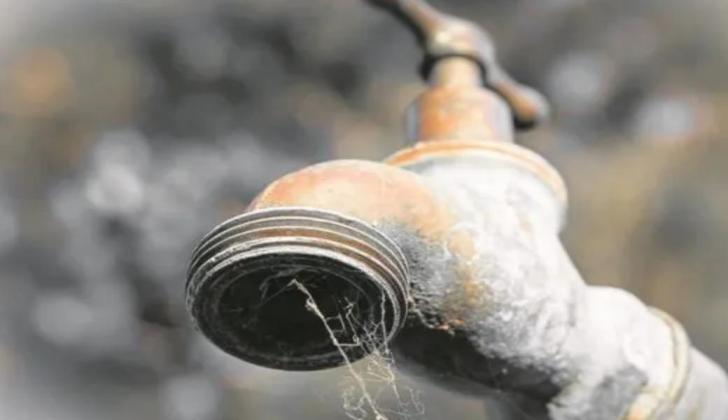News / National
Bulawayo City Council cuts water supplies to schools
15 Dec 2024 at 09:14hrs |
0 Views

The Bulawayo City Council (BCC) has intensified its debt recovery efforts, cutting off water supplies to 59 schools in a bid to recover outstanding payments. This bold move comes as the local authority grapples with mounting debts, threatening its capacity to deliver essential services.
According to the latest council report, the city's total debt reached ZiG712.6 million by the end of September 2024, a 21% increase from the previous month. The spike in arrears is attributed to resource constraints in the council's debt management operations. Despite debt recovery measures targeting US$17.5 million, only US$4 million - 23% of the target - has been collected.
Among the hardest-hit institutions are 59 schools that collectively owe US$607,419. With 146 primary schools and 57 secondary schools in Bulawayo, the affected schools represent 29% of the city's educational institutions.
Nkulumane residents have also faced water disconnections, with 461 homes affected as the council sought to recover US$134,891. However, this effort yielded minimal results, recovering only US$2,848, a collection efficiency of just 2.11%.
Efforts to engage businesses have had mixed results. Of the 873 companies approached via emails and calls to recover US$4.8 million, the council managed to collect US$3.3 million, a 69.4% efficiency rate. Meanwhile, 1,644 companies given 24-hour notices owe a combined US$2.3 million, but only US$128,351 has been recovered, reflecting a mere 5.42% success rate.
Residential areas have not been spared, with several suburbs, including Famona, Nketa, Pumula, and Magwegwe, facing debt collection efforts through final demands, call-ins, and phone engagements. Across all categories, domestic users account for the largest share of the council's outstanding debt, owing US$19.4 million (68%), followed by industrial and commercial debtors at US$7.3 million (26%), and the government at US$1.8 million (7%).
The decision to disconnect water supplies at schools has sparked controversy, with stakeholders warning of dire consequences. Bulawayo United Residents Association (BURA) chairperson Mr. Winos Dube expressed concern over potential health risks, particularly in densely populated schools.
"It is fortunate that schools are closed now, but these disconnections began when schools were open. A school is a high-density environment, and it will be the same council that cries foul when a disease outbreak such as cholera occurs," Mr. Dube said.
He acknowledged the importance of residents paying their bills but urged the council to address the issue of inaccurate billing. "We have a serious issue of unjustifiable bills, which the local authority has failed to resolve," he added.
Defending the council's actions, spokesperson Mrs. Nesisa Mpofu emphasized that the disconnections are in line with city by-laws, including the Credit Control and Debt Management Policy and the Bulawayo (Drainage, Sewerage, and Water) by-laws.
"The collection of debts is based on existing policies and by-laws. It is an enforcement of policies to ensure compliance. Consumers of council services are called upon to familiarise themselves with these regulations," said Mrs. Mpofu.
The financial crisis has forced the council to strike a delicate balance between debt recovery and maintaining essential services. As the city intensifies its efforts to recover debts, the impact on vulnerable institutions like schools raises questions about the long-term consequences for public health and education.
According to the latest council report, the city's total debt reached ZiG712.6 million by the end of September 2024, a 21% increase from the previous month. The spike in arrears is attributed to resource constraints in the council's debt management operations. Despite debt recovery measures targeting US$17.5 million, only US$4 million - 23% of the target - has been collected.
Among the hardest-hit institutions are 59 schools that collectively owe US$607,419. With 146 primary schools and 57 secondary schools in Bulawayo, the affected schools represent 29% of the city's educational institutions.
Nkulumane residents have also faced water disconnections, with 461 homes affected as the council sought to recover US$134,891. However, this effort yielded minimal results, recovering only US$2,848, a collection efficiency of just 2.11%.
Efforts to engage businesses have had mixed results. Of the 873 companies approached via emails and calls to recover US$4.8 million, the council managed to collect US$3.3 million, a 69.4% efficiency rate. Meanwhile, 1,644 companies given 24-hour notices owe a combined US$2.3 million, but only US$128,351 has been recovered, reflecting a mere 5.42% success rate.
Residential areas have not been spared, with several suburbs, including Famona, Nketa, Pumula, and Magwegwe, facing debt collection efforts through final demands, call-ins, and phone engagements. Across all categories, domestic users account for the largest share of the council's outstanding debt, owing US$19.4 million (68%), followed by industrial and commercial debtors at US$7.3 million (26%), and the government at US$1.8 million (7%).
"It is fortunate that schools are closed now, but these disconnections began when schools were open. A school is a high-density environment, and it will be the same council that cries foul when a disease outbreak such as cholera occurs," Mr. Dube said.
He acknowledged the importance of residents paying their bills but urged the council to address the issue of inaccurate billing. "We have a serious issue of unjustifiable bills, which the local authority has failed to resolve," he added.
Defending the council's actions, spokesperson Mrs. Nesisa Mpofu emphasized that the disconnections are in line with city by-laws, including the Credit Control and Debt Management Policy and the Bulawayo (Drainage, Sewerage, and Water) by-laws.
"The collection of debts is based on existing policies and by-laws. It is an enforcement of policies to ensure compliance. Consumers of council services are called upon to familiarise themselves with these regulations," said Mrs. Mpofu.
The financial crisis has forced the council to strike a delicate balance between debt recovery and maintaining essential services. As the city intensifies its efforts to recover debts, the impact on vulnerable institutions like schools raises questions about the long-term consequences for public health and education.
Source - The Sunday Mail
Join the discussion
Loading comments…




























